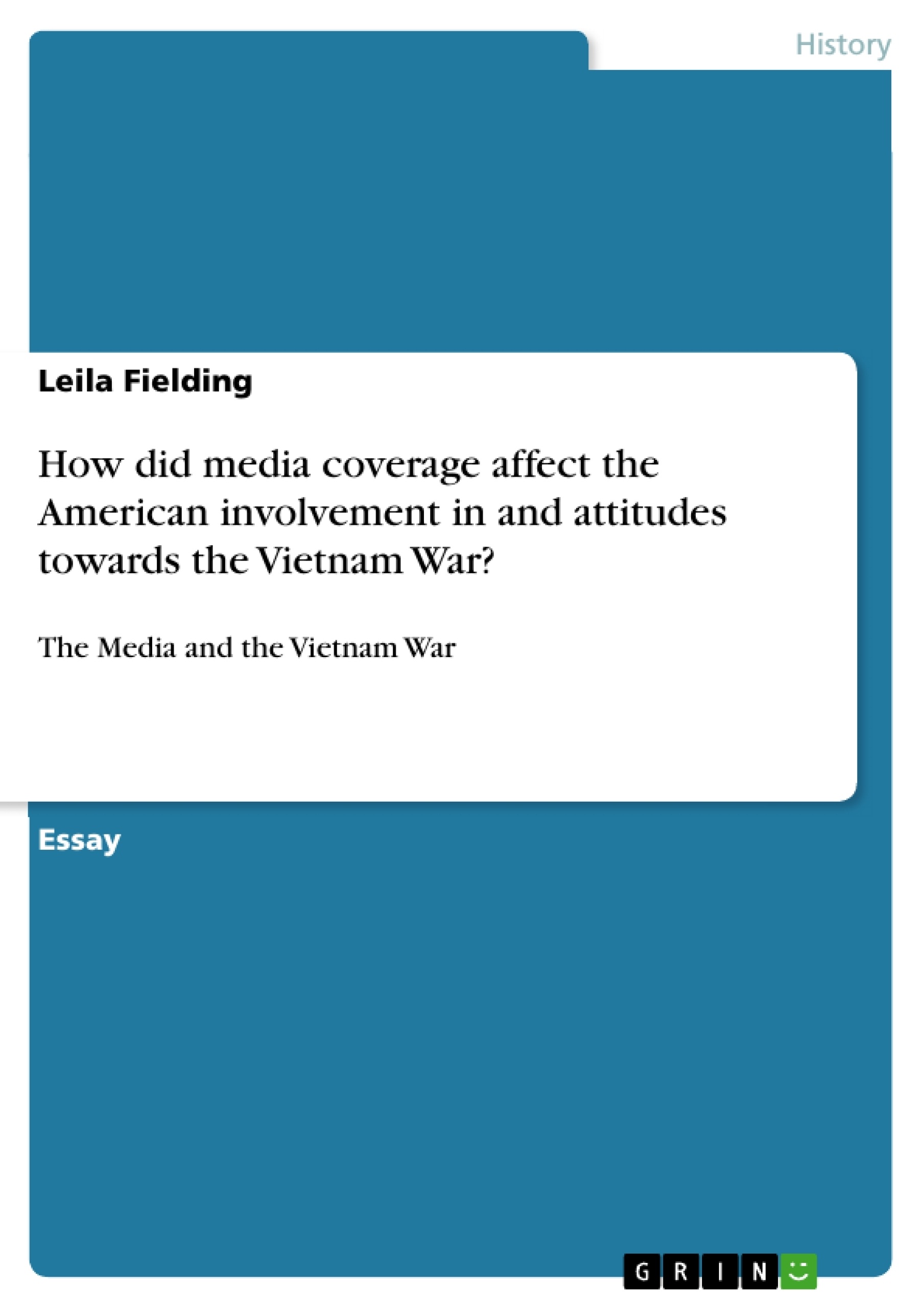Of the surplus of myths which burgeoned from the carnage of Vietnam, perhaps none is more deceptive than the legend of an audacious, antagonistic mainstream media turning Americans against the war. In brief, two main factors characterise this debate. The first asserts that America lost the war due to damaging media coverage, particularly on television, which undermined political and military endeavours. The second affirms that the majority of journalists and reporters opposed the war, and their subsequent opinions polluted popular support for Vietnam. These suppositions have been reinforced by former correspondents like Robert Elegant, who, in 1981, argued that the outcome of war was “determined not on the battlefield but on the printed page and, above all, on the television screen.” Neither of these widely accepted lines, however, can be convincingly verified. Many scholars now argue that the media in fact did not guide public opinion, but merely shadowed the ebb and flow of fluctuating social and political sentiment. Although there was some unfavourable press representation, which gained momentum as war raged on, it was inspired by a lack of perceptible confidence concerning Vietnam policy on the part of the administration and bolstered by a social view that Vietnam was an enduring conflict which had taken its toll on American lives and finances. The press, the most visible exponent of a society which appeared to have turned against Vietnam, became scapegoat, providing a convenient explanation for anti-war sentiment.
Table of Contents
- Vietnam: How did media coverage affect the American involvement in and attitudes towards the Vietnam War?
- The Media and the Vietnam War: A Controversial Narrative
- Debunking the Myth of Media Control
- Media Representations and Public Opinion
- Media Misrepresentation and Public Support
- The 'Cronkite Moment' and its Impact
- Media Cooperation and Compliance with the Military
- Press Attitudes and the Anti-Communist Campaign
Objectives and Key Themes
This essay aims to critically examine the role of media coverage in shaping American involvement and public attitudes towards the Vietnam War. It analyzes the dominant narrative that the media turned Americans against the war, challenging claims of media manipulation and examining the complexities of media influence during a highly contentious conflict.- The impact of media coverage on American public opinion and government policy during the Vietnam War.
- The evolution of media representations and the extent to which they reflect or shape public sentiment.
- The influence of key media events, such as the Tet Offensive and the 'Cronkite Moment,' on public perception and government actions.
- The relationship between the media and the military, including the role of censorship and cooperation.
- The influence of anti-communist sentiment on media coverage and public opinion.
Chapter Summaries
- Vietnam: How did media coverage affect the American involvement in and attitudes towards the Vietnam War? This introductory chapter establishes the central argument of the essay, challenging the widely held belief that the media was solely responsible for turning Americans against the war.
- The Media and the Vietnam War: A Controversial Narrative This section examines the two main arguments surrounding the role of the media in the Vietnam War. It critiques the assertion that negative media coverage led to America's defeat and challenges the assumption that journalists universally opposed the war.
- Debunking the Myth of Media Control This chapter delves into the debate surrounding media influence, arguing that the media largely mirrored existing public sentiment rather than driving it. It highlights the lack of clear evidence for media manipulation and presents an alternative perspective on the evolution of anti-war attitudes.
- Media Representations and Public Opinion This section explores the specific ways in which media coverage shaped public opinion, analyzing statistics related to the representation of different viewpoints. It examines the limited presence of enemy perspectives and the disproportionate focus on American military actions.
- Media Misrepresentation and Public Support This chapter investigates the claim that the media misled the public about the true nature of the war, focusing on the impact of events like the Tet Offensive. It challenges the notion that media misrepresentation was solely responsible for the decline in public support.
- The 'Cronkite Moment' and its Impact This section analyzes the famous televised speech by Walter Cronkite, examining its alleged influence on public opinion and government policy. It argues that Cronkite's pronouncements were rooted in existing social discontent and that his speech served as a catalyst for pre-existing anti-war sentiment.
- Media Cooperation and Compliance with the Military This chapter explores the relationship between the media and the military, highlighting the prevalence of self-censorship and cooperation. It examines the extent to which media outlets adhered to official narratives and refrained from critical examination of government motives.
- Press Attitudes and the Anti-Communist Campaign This section delves into the influence of anti-communist sentiment on media coverage and public opinion. It analyzes the historical context of the Cold War and the widespread fear of communism, which shaped media representations of North Vietnam and the conflict itself.
Keywords
This essay explores the complex interplay between media coverage, public opinion, and government policy in the context of the Vietnam War. Key terms and concepts include: media influence, public sentiment, anti-war sentiment, media manipulation, media bias, Tet Offensive, 'Cronkite Moment,' censorship, propaganda, and the Cold War.- Quote paper
- BA HONS Leila Fielding (Author), 2012, How did media coverage affect the American involvement in and attitudes towards the Vietnam War?, Munich, GRIN Verlag, https://www.grin.com/document/203181




